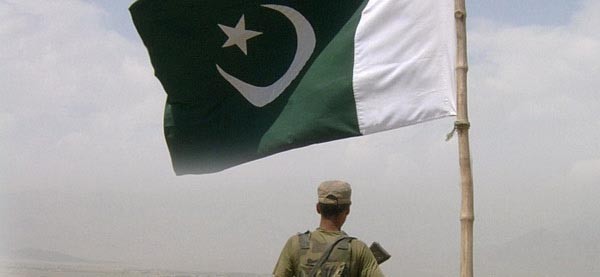

Men continue to fall, one after another, in one of the most complicated and protracted war Pakistan has ever been faced with. Unfortunately, however, this time the war is not being fought on, or out of, our borders but right within the geographical bounds of the country. Some call it war on terror; others are confused or confusing others.
Though civilian casualties have been no less in number, those dying mostly belong to law-enforcing agencies. The response of the central and provincial governments towards those who die in the line of duty -- the martyrs -- is not uniform, to say the least. When some high ranking official is killed, or the incident as a whole gets media attention, compensation packages are readily announced. However, low ranking men get killed on almost daily basis, but given the frequency and remoteness of such killings, fail to make it to the headlines. Whether compensation is announced or not, one thing is certain: with complicated processes and multiple government offices involved, there is no smooth road for their families to actually get the compensation. Situation is somewhat better in case of certain well-organised institutions (read army); hopeless when it comes to others.
Now that a problem is at hand and everyone has become, or is becoming, aware of it, why not to start getting it resolved? People are giving their lives, in the line of duty, for us to live in peace so should we not take care of them, if and when they embrace martyrdom? And mind you, we would still not be doing them any favour; only that we are trying to acknowledge the greatest sacrifice one can make for one’s people and take care of their near and dear ones, who would otherwise have to languish for the rest of their lives. We should rather do it as a matter of their rights: the rights of the martyrs. Have not heard of these rights? Have not seen them in text books either? So what?
The concept of human rights grew gradually over last many centuries and continues to do so. For how long would we keep on borrowing those rights from the western world? Let’s start something original for the first time ourselves, in view of our peculiar circumstances, and make others to follow.
Martyrs never die, and this is something our Prophet (PBUH) told us too, so they need to be treated accordingly. Their salaries as well as other perks and privileges should continue, rather grow, as if they happen to be physically not only living amongst ourselves but flourishing in their personal and professional lives. All other benefits which generally accrue at the time of retirement such as pension, gratuity etc. should also be given at due time. Their children should be provided free education within the country; not merely education, but the best possible education, which a living father would like to provide to his children in given circumstances.
The leading institutions from all over the world should also be identified and if the children of the martyrs get admission in certain approved Masters’ and professional programmes of those institutions on merit, they should be given scholarships for the same.
Similarly, wholesome healthcare facilities should also be extended to the families of the martyrs. Finally, a special needs fund should be created for such families to meet emergencies like marriages and funerals. The idea is to do our best to take financial worries away from the personnel of law enforcing agencies, as they fight, and from their families, if they die.
It should also be ensured that the afore-mentioned rights are bestowed on the families without any hassle and, more importantly, without compromising on their dignity and self-respect. The legislation should start at federal level, and the provinces should follow suit.
An office of commissioner of martyrs should be created in each province to carry out necessary coordination with all departments in this behalf, and a separate budget line be approved in annual budgets. Data should be duly maintained and audit be carried out at regular intervals, with full public access to all such information.
As it appears that the issue of terrorism is going to live with us, or vice versa, at least for the foreseeable future, it is high time for the society to act as a whole. Seeing the agony of the families of martyrs is one thing; undergoing the same is altogether different. We cannot redress the actual damage done but, at least, we should all feel obliged to alleviate their sufferings.
Similarly, such rights should also be extended to those who become permanently disabled in the line of duty. It is heartening to note that Institute of Social and Policy Sciences, an Islamabad-based organisation, is already working on compensation for civilian victims of conflict and terrorism and has even prevailed upon the Balochistan Assembly to pass legislation to that effect. Someone now needs to take the lead and enunciate rights of martyrs for the government machinery as well.
In conclusion, one would also like to mention here that in addition to taking care of material needs of the families of the martyrs, the formal recognition of such rights would have psychological benefits as well. It would raise the morale, and level of courage, of those who are in frontlines in our war on terror, on one hand and on the other, would take at least some sense of achievement from the terrorist organisations and individuals, if and when they get our men.